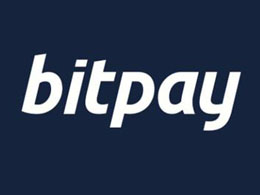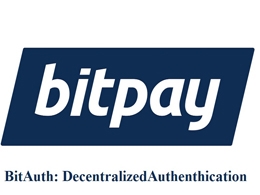
BitPay Introduces BitAuth, a Password Authentication Protocol
Atlanta, Georgia-based BitPay today introduced a new password-less means of authentication dubbed BitAuth - designed to reduce (or even eliminate) the storage of passwords on server-side, and thus decreasing the impact of a compromised server. "We've given long and careful thought to how best to protect the security of our customers' data, of especially critical importance when dealing with financial information. Existing authentication schemes that you might be familiar with include username and password, client-side SSL certificates, or even shared secrets - in the end of our review, we....
Related News
Georgia-based bitcoin merchant processor BitPay has launched a project that leverages bitcoin technology to facilitate a decentralized authentication system. Called BitAuth, the system uses cryptographic signatures in place of server-side password storage. This solves a common security problem for IT administrators, because a breach can potentially leak customer authentication information. Bitcoin core developer and BitPay employee Jeff Garzik conceived some of the concepts that made BitAuth a reality. Garzik told CoinDesk: "Replacing passwords with digital signatures is not a very....
Some news coming this evening from the BitPay camp. The Atlanta-based bitcoin processing company announced Thursday a new cryptographically-secure API that makes use of previously-announced authentication protocol BitAuth. Without getting to specific (largely due to the fact that I am not a programmer/developer), BitPay's new API offers a number of features that certainly sound like they are useful. This includes the implementation of refunds to any bitcoin address (as opposed to requiring a BitPay account). here's what BitPay has to say on the feature: [The refund API] will allow all of....
Decentralized Authentication. Chew on that for a bit. But why is it needed? Here’s what Bitpay said about this: But how? How is a decentralized authentication system possible? Inspired by the same elliptic-curve cryptography as Bitcoin, Bitpay proposes to use SIN, or system identification number. Originally proposed by Jeff Garzik, Bitcoin Core Developer, SIN is intended to be a fully decentralized, anonymous, secure identity. SIN also has the following features: On top of these, there is the chance for two SIN’s, type-1 and type-2.
SatoshiLabs newly-announced TREZOR Password Manager will store and manage passwords securely and is available for public beta testing for all TREZOR hardware owners, the company announced on Medium. A Chrome extension is available. The new password manager uses advanced cryptography. A user can encrypt each password entry using their personal TREZOR device. The password manager automatically uploads the encrypted data to the user’s private cloud storage, where it is available as needed. No Master Password. TREZOR now addresses the most pressing flaw in password managers, the chance that....
The developers of Authy have come up with a new and user-friendly service, OneTouch, that will be identity authentication made easy. All that is required of the user is to swipe once and authentication is complete — no code or password required. The application works by first sending you a push notification that then gives you the option to swipe to....





